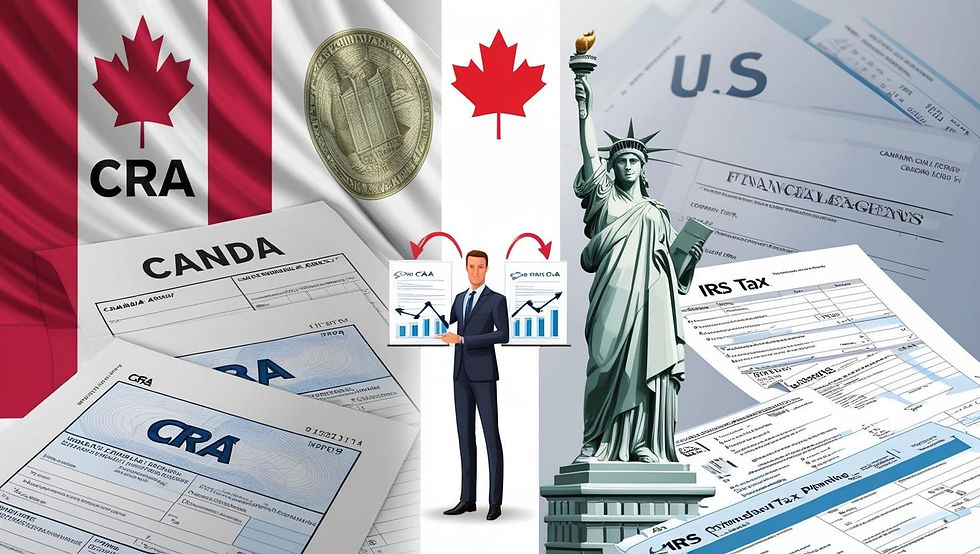Top 3 Common Mistakes in Cross-Border Tax Planning and How to Avoid Them
- cardinalpointwealt2
- Jan 15, 2025
- 2 min read
Cross-border tax planning is complicated, particularly for individuals and businesses with international ties. Managing tax obligations across multiple jurisdictions each with its rules is the problem. Unfortunately, many people commit mistakes that might bring unnecessary tax liabilities, fines, or even legal trouble.
This article provides information on the most common three errors of cross-border tax planning, together with some practical suggestions to avoid those.

Neglect of Tax Treaties and Agreements—
Perhaps one of the biggest errors when doing cross-border tax planning is neglecting tax treaties and agreements. In most cases, tax treaties exist to reduce or prevent the taxation of one country against that of another country, providing individuals and businesses an avenue out from burdensome taxes.
How to Avoid It: Always find out or hire a tax consultant to make you understand the available tax treaties for the involved countries. Make sure you are on the right footing regarding your obligation to the respective taxation.
Not Reporting Foreign Income Correctly—
Many people err in not reporting foreign income accurately or comprehensively. Whether it is salary earned abroad, investment income, or business profits, failure to report foreign income can lead to hefty penalties and interest charges.
How to Avoid It: Be diligent in reporting all foreign income on your tax returns. Familiarize yourself with the reporting requirements. Seeking professional guidance ensures compliance with both domestic and foreign tax laws.
Ignoring the Impact of Different Tax Jurisdictions—
Each jurisdiction has its tax rates, rules, and compliance requirements. The ignorance of such differences can lead to errors in tax planning. Overpaying or underpaying taxes can result from ignoring the impact of such varying tax systems.
How to Avoid It: Seek professional advice from a cross-border tax professional. A good tax professional can help structure income and investments to minimize the burden of tax on you.
Conclusion:
Now, you may know how complicated cross-border tax planning is; however, being aware of some common mistakes would help ensure your financial strategy is sound and compliant. To secure the best tax outcomes for your situation, you must contact a leading cross-border wealth management service provider.




Comments